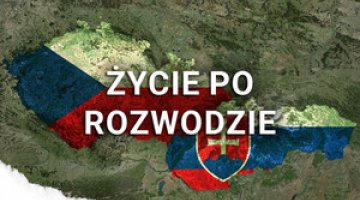President Milos Zeman will change the Czech political scene
The former Czech left-wing prime minister, Milos Zeman, won the presidential election, defeating Karel Schwarzenberg, the present deputy prime minister and minister of foreign affairs, in the runoff on 25-26 January. Their support levels were 55% and 45% respectively, with turnout at 59%. He will take office from Vaclav Klaus on 8 March.Zeman’s presidency will bring about changes on the Czech political scene and will see an adjustment in foreign policy. As president he will make efforts to weaken the government and to have a snap parliamentary election in order to exploit his victory in the pursuit of increasing the popularity of his small political party. As regards foreign policy, Zeman is likely to be more open to integration within the EU than Vaclav Klaus. The president-elect, for example, wants the Czech Republic to enter the eurozone, but at the same time criticises the anti-crisis mechanisms operating in the EU and insists that Greece should declare itself bankrupt. One of Zeman’s ideas is that Russia should join the EU in the longer term. Milos Zeman actively participated in the work of the Visegrad Group in 1998-2002, when he was prime minister. He is, therefore, very likely to be interested in developing this format of co-operation also during his presidency.
The sources of Milos Zeman’s success
Milos Zeman was unilaterally dictating the tempo and the topics in the election debate during the two weeks between the first and the second round of the presidential elections, thus forcing his opponent to take a defensive stance. The campaign, in which the media (supporting Karel Schwarzenberg) and the family of President Vaclav Klaus (supporting Milos Zeman) were also engaged, was rather aggressive. Zeman managed to turn it into a ‘who is the more real Czech’ competition. Karel Schwarzenberg spent 41 years in exile and his wife is an Austrian, who does not speak Czech – thus this competition was very difficult for him to win. Displacements of ethnic Germans after World War II under the Benes decrees were an important subject of the pre-election debate. Milos Zeman said without any doubt that he recognises the decrees as an invariable element of the legal order. In turn, Karel Schwarzenberg, in an attempt to explain certain legal nuances, did his best to convince voters that no one is going to return the property left by Germans in the Czech Republic, but the displacements would have been regarded as serious violation of human rights had they taken place today.
One of Karel Schwarzenberg’s successes was the fact that being a deputy prime minister in a very unpopular government he managed to present himself as a politician who was not responsible for the mistakes of the Petr Necas cabinet and offered an alternative to the existing political class. Unlike Schwarzenberg, Zeman could, however, more freely speak in defence of the poorest Czechs, who had been affected by tax rises, and he was able to promise them that ‘anti-social’ government policy would be held back and a progressive taxation system would be introduced.
Changes on the Czech political scene
Formally, the president’s competences are limited, but his real political power is usually strengthened through behind-the-scenes influence on government or parliament members linked to the president. No legislative initiative is granted to the president. Nevertheless, he can have an impact on internal policy using his veto and nominations to the Czech National Bank (on his own initiative), the Supreme Audit Office (upon a motion from the Chamber of Deputies) and the Constitutional Court (subject to consent from the Senate, where the political left currently predominates). According to his declarations, he intends to delegate experts to these institutions. One should assume that these experts will be chosen from among those who co-operated with Zeman when he was prime minister.
Zeman declared already in the first interview he gave after the announcement of the election results that he did not like the present centre-right coalition and that he saw the need for early elections. It cannot be ruled out that he will attempt to foment division inside the coalition, which already has no stable majority in parliament. According to poll results, a snap election would be won by the opposition Czech Social Democratic Party (CSSD). Zeman’s relations with the leadership of this party are not at their best. However, allies of the new president can also be found among its members (for example, Zdenek Skromach), who are likely to gain more power. A snap election would offer an opportunity for the Party of Civic Rights – Zeman’s people (SPOZ), which has only two senators in parliament, to capitalise on Zeman’s personal popularity. The support level for this party in the previous election was 4.3%. This time it could enter the Chamber of Deputies and even form a coalition with the CSSD and possibly also with the Communist Party.
Zeman’s victory with a support level almost ten percentage points higher than that of his rival, gives him a strong public mandate. The new president will certainly draw upon this during his expected attempts to interpret his competences in the broadest possible terms. Such practices will inevitably lead to clashes with the government and other constitutional bodies.
Revision of foreign policy
Milos Zeman, in comparison to the outgoing president, Vaclav Klaus, is more open to political and economic integration within the EU. However, his vision of the EU is rather peculiar. Zeman declares himself as a ‘Euro-federalist’, a supporter of the EU’s common foreign policy and the creation of an EU army. At the same time, he readily quotes examples of what he sees as the excessive bureaucratisation of the EU and expresses his opposition to the idea of turning the EU into a ‘super-state’. Milos Zeman criticises the currently adopted mechanisms for overcoming the eurozone crisis and is of the opinion that Greece should have declared itself bankrupt a long time ago. However, unlike most Czechs, he would like his country to enter the eurozone. As regards enlargement policy, Zeman supports the accession of Croatia and Serbia to the EU. In his opinion, the remaining Western Balkan countries should remain outside the European Union. Zeman is opposed to Turkey gaining EU membership, and he insists that Russia should join the EU in the longer term.
Zeman shares with President Klaus the vision that Russia is not a threat but an important economic partner. Zeman’s closest aides have economic links with Russian business, and this is likely to see the presidency open Russia in the next term. At the same time, Zeman supports US policy in many areas. He is in favour of a Czech military presence in Afghanistan and of a pre-emptive strike against Iran. It is also characteristic of Milos Zeman to be distrustful of Islamic countries and to back Israel in the Middle Eastern conflict. Zeman proved to be a supporter of close co-operation within the Visegrad Group already as prime minister in 1998–2002, and he is also very likely to be engaged in the work of the V4 as president. Zeman will probably have especially good relations with Slovakia, whose president and prime minister are left-wing politicians. The topic which the new Czech president will wish to promote in the Central European context will be the construction of the Danube-Oder-Elbe channel.





